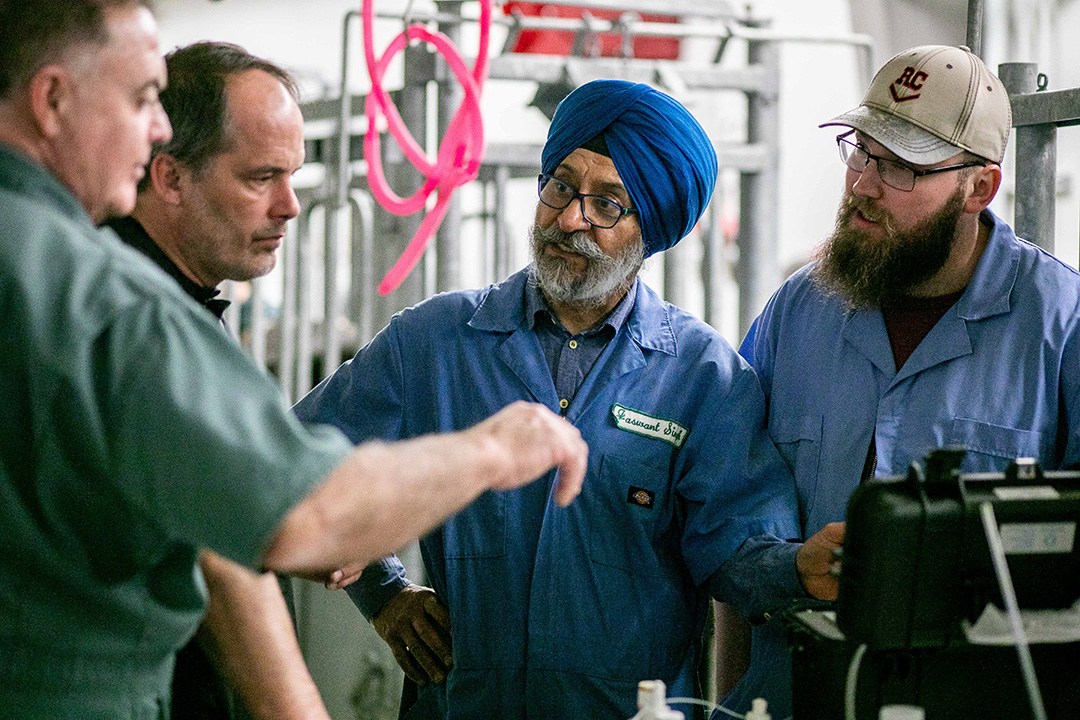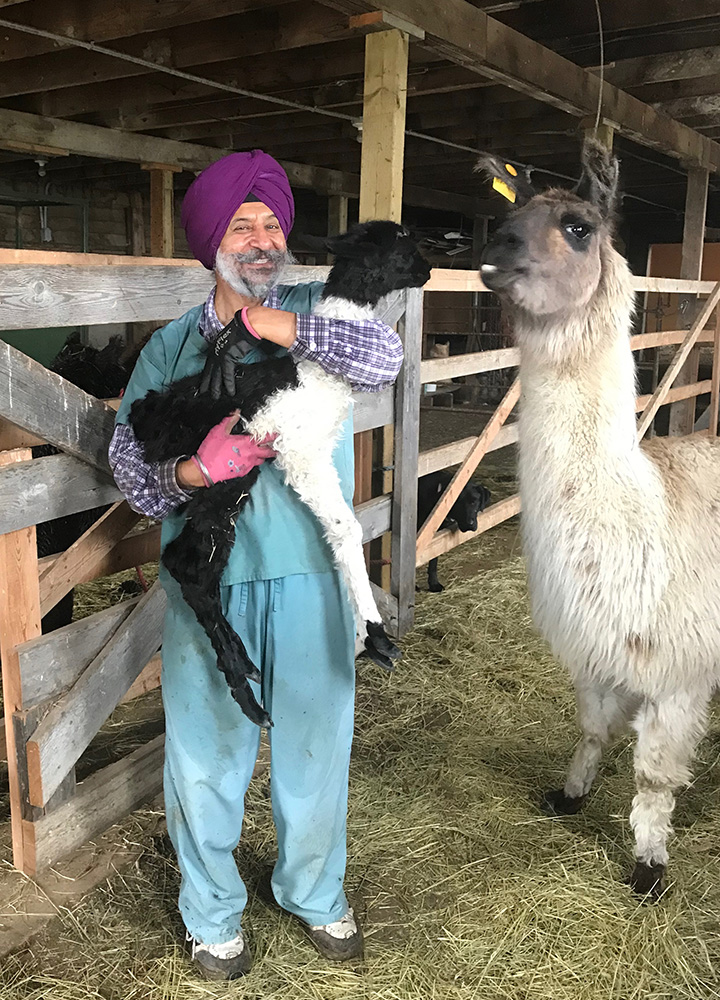
USask veterinary professor new CGPS associate dean
Dr. Jaswant Singh, a University of Saskatchewan (USask) veterinary professor and reproductive scientist, is the new associate dean, academic excellence and innovation, at the university’s College of Graduate and Postdoctoral Studies (CGPS).
By WCVM Today
Singh (BVSc&AH, PhD) begins his new role on February 1, 2024, for a three-year term. As part of his new job, Singh will provide vision for innovation in graduate degrees and holistic graduate education in addition to being responsible for academic affairs at CGPS.
CGPS oversees 120 USask programs including certificates, diplomas, doctoral degrees, thesis-based master’s programs, and entry-to-practice master’s programs for professional designations. The college has more than 225 postdoctoral fellows and 4,400 graduate students with over 1,800 faculty members involved in supervising graduate students at USask colleges and schools — including the WCVM.
Singh completed his veterinary education as well as a master’s degree at the Punjab Agricultural University of India before moving to Canada. After finishing a PhD program at USask in 1997, he joined the faculty at the Western College of Veterinary Medicine (WCVM) in 2000.
Singh has taught microscopic and gross anatomy to the college’s first-year veterinary students for nearly 25 years, and his graduate teaching includes physiology and reproduction in mammals, reproduction techniques, and ultrastructural cytology.
He has also co-directed 13 of the WCVM’s highly successful ultrasonography and embryo transfer continuing education (CE) training workshops that attract veterinarians, researchers and graduate students worldwide.
Singh’s reproductive research focuses on the ultrasonographic, morphologic and biochemical kinetics, and endocrine control of ovarian follicles. Internationally recognized for his work in bovine reproduction, Singh and his research team have established and validated the bovine model of maternal reproductive aging for the study of ovarian function in women. Recently, his research group patented the use of GnRH antagonists (hormonal drugs) to synchronize follicle wave emergence in mammals.
During his research career, Singh and his team members have published 149 peer-reviewed scientific articles, filed three patents, and received numerous national and international awards. His successful research program has been funded by the Natural Sciences and Engineering Research Council of Canada (NSERC) as well as other federal and provincial government agencies and livestock industry groups. He is also a long-time member of the USask One Reproductive Health group that includes veterinary and human medicine scientists from across campus.
Singh has supervised or co-supervised 31 graduate students as well as more than 50 undergraduate students involved in research. He has also hosted three postdoctoral fellows and 19 faculty members from around the globe. He sees mentorship as a passion, one that he calls extremely rewarding in the academic community. His experience in teaching and mentorship led to his inclusion on a campus-wide faculty committee studying mentorship programs at USask and other U15 universities, and subsequently, the role of lead research mentor for the university’s new faculty mentorship program.
In addition to his teaching and research work, Singh served two terms as graduate chair in the WCVM’s Department of Veterinary Biomedical Sciences. He has been chair of the Division of Biomedical Engineering (through CGPS) since 2021 and a member of numerous committees at the college and university levels.
